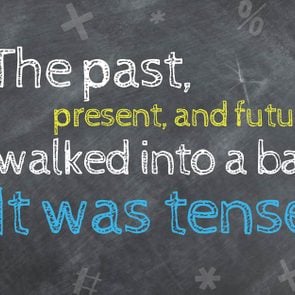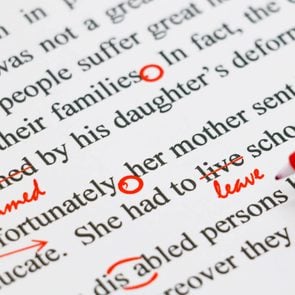“Envy” vs. “Jealousy”: What’s the Difference?
Updated: Apr. 12, 2023

Not sure when to use envy vs. jealousy? While it's not fun to feel either of these, the word choice clues are in the context.
The English language is rich with synonyms. But not all synonyms are created equal. Take envy vs. jealousy. Sometimes one can be substituted for the other, but it would really depend on your intended meaning. Confused? You’re not alone.
If you pick jealousy vs. envy in a sentence, or vice versa, it may or may not be the best word choice. And since their definitions have something of an overlap, sorting between the two is extra confounding. Figuring usage is just as tricky for loose vs. lose, home in vs. hone in and flush out vs. flesh out (for that last one, think plumbing!). Then there are grammar errors that stump even spellcheck, when the context doesn’t prompt a trigger, like stationary vs. stationery, elicit vs. illicit and discreet vs. discrete.
If you’re the grammar enthusiast who appreciates the difference between historic vs. historical, burnt vs. burned and other grammar rules to sound smarter, understanding when to use envy vs. jealousy will be right up your alley.
What does envy mean?
If you covet what someone else has, that’s envy. It can be a tangible thing, like jewelry, or intangible, like a characteristic or a relationship. Envy can be a noun or a verb. You envy someone’s new car, but the feeling you have when seeing it in their driveway is also envy.
Envy stems from the Latin invidere, which means to “look upon” or see, sometimes with negative emotion. In that context, begrudge can be a handy synonym. While you may be happy for someone else’s good fortune, you would also prefer a little bit of it for yourself.
Examples of envy in a sentence
- I envy my daughter’s ability to sleep during long car trips.
- The bridesmaid disguised her envy of her best friend’s wedding gown with a broad smile.
- He wanted to feel happy about his colleague’s promotion, but all he felt was envy.
What does jealousy mean?
Jealousy describes the feeling of resentment, bitterness or hostility toward someone with the thing they have and you do not. Imagine envy on steroids. It is also commonly used in relationships when someone suspects his or her partner is unfaithful or when someone suspects a rival is poaching a partner. Whether founded or unfounded, the jealousy is considered unhealthy for the people, relationships or both. And if you’re feeling jealous, you’re often feeling threatened by a third party or fearful of losing something that’s yours.
The root of jealousy derives from the Greek word for zeal. While zeal suggests great energy or ardor, jealousy is altered to an all-negative association, whether it is coveting someone else’s fortunes or guarding a relationship against intruders. William Shakespeare refers to jealousy in The Merchant of Venice and later in Othello as the “green-eyed monster,” i.e. emotion that could push you over the edge.
Examples of jealousy in a sentence
- A day at the country club turned sour for the young man, as he could only feel jealousy when his girlfriend stopped to chat with the lifeguard.
- The tech company CEO dismissed the negative tweets about him as jealousy.
- The jealous political candidate refused to shake hands when her rival won, blaming her loss on a biased press.
What’s the difference between envy and jealousy?
The subtleties between envy and jealousy make them a little different than words you’re using wrong. And while choosing the wrong word in this instance isn’t necessarily a grammar mistake that makes you look bad, there are some slight context differences that can help you choose. In this case, usage in the sentence can help. Jealousy is a noun, while envy can be a noun or a verb. Intensity is more important. When the emotion is deeply felt and spiteful, jealousy is likely the culprit. That’s especially true in romance. Sure someone can be envious of a marriage between two loving people, but that’s over the relationship, not the people themselves. Bitterness and resentment, or a behavior-altering fear of losing one’s partner, are the products of jealousy, not envy.
If you’ve considered envy and jealousy synonyms, maybe blame the phrase “green with envy” and its long history. It likely predates when Shakespeare connected them. Debated origins of the phrase include the biblical story of Cain, a farmer who murders his brother Abel in a jealous rage, as well as ancient Greek lore that linked green to the color of bile and its impact on a jealous lover’s face. So forgive yourself if envy vs. jealousy have felt interchangeable to date.
For more ways to grow your vocabulary, check out these confusing grammar rules, fancy words to sound smarter and the most commonly misspelled words.
Envy vs. jealousy: Test your knowledge!
Sources:
- Merriam-Webster: “Jealousy”
- Merriam-Webster: “Envy”
- Language Humanities: “What does it mean to be ‘green with envy’?”





















